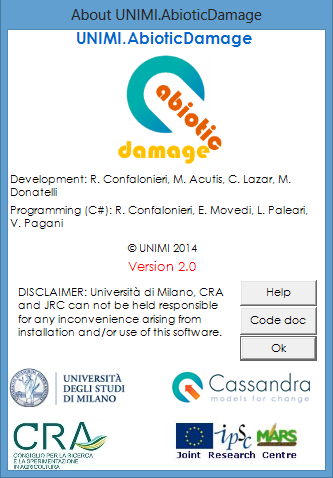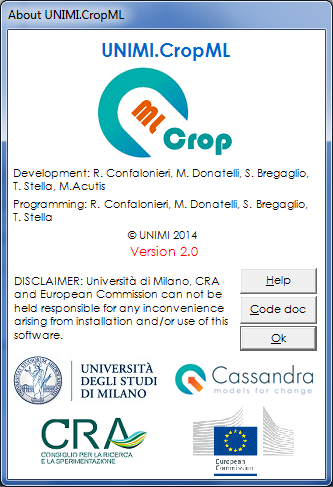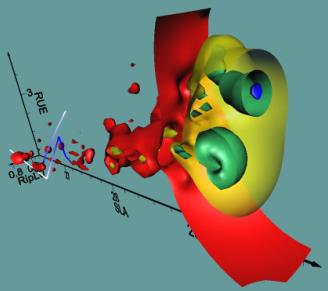A statistical analysis of three ensembles of crop model responses to temperature and CO2 concentration.
 |
2015 - Agricultural and Forest Meteorology, 214-215, 483-493 |
 |
Makowski, D., Asseng, S., Ewert, F., ... , Confalonieri, R., ... , Zhu, Y. |
Abstract:
Ensembles of process-based crop models are increasingly used to simulate crop growth for scenariosof temperature and/or precipitation changes corresponding to different projections of atmospheric CO2 concentrations. This approach generates large datasets with thousands of simulated crop yield data. Such datasets potentially provide new information but it is difficult to summarize them in a useful way due to their structural complexities. An associated issue is that it is not straightforward to compare crops and to interpolate the results to alternative climate scenarios not initially included in the simulation protocols. Here we demonstrate that statistical models based on random-coefficient regressions are able to emulate ensembles of process-based crop models. An important advantage of the proposed statistical models is that they can interpolate between temperature levels and between CO2 concentration levels, and canthus be used to calculate temperature and [CO2] thresholds leading to yield loss or yield gain, without re-running the original complex crop models. Our approach is illustrated with three yield datasets simulatedby 19 maize models, 26 wheat models, and 13 rice models. Several statistical models are fitted to these datasets, and are then used to analyze the variability of the yield response to [CO2] and temperature. Based on our results, we show that, for wheat, a [CO2] increase is likely to outweigh the negative effect of a temperature increase of +2°C in the considered sites. Compared to wheat, required levels of [CO2] increase are much higher for maize, and intermediate for rice. For all crops, uncertainties in simulating climate change impacts increase more with temperature than with elevated [CO2].
 |
Keywords: Climate Change, crop model, emulator, meta-model, statistical model, yield |
 |
DOI: 10.1016/j.agrformet.2015.09.013 |
 |
AbioticDamage A software component for the impact of abiotic damages on crop productions |
 |
CropML CropML is a framework-independent component implementing a variety of approaches for crop growth |
- Comparison of three calibration methods for modeling rice phenology
- A simple pipeline for the assessment of legacy soil datasets: An example and test with soil organic carbon from a highly variable area.
- A high-resolution, integrated system for rice yield forecasting at district level.
- Downscaling rice yield simulation at sub-field scale using remotely sensed LAI data.
- Analysis and modelling of processes involved with salt tolerance and rice.
- Estimating crop nutritional status using smart apps to support nitrogen fertilization. A case study on paddy rice.
- Development of generic crop models for simulation of multi-species plant communities in mown grasslands.
- Quantifying uncertainty due to stochastic weather generators in climate change impact studies
- Predicting rice blast disease: machine learning versus process-based models
- Boundaries and perspectives from a multi-model study on rice grain quality in Northern Italy.




